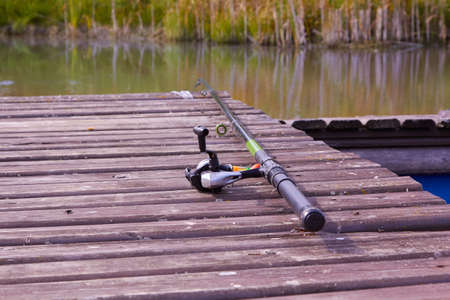Understanding the Unique Nature of UK Carp Fishing Tournaments
When preparing for your first UK carp fishing tournament, it’s essential to understand what makes these events distinctively British. Unlike casual angling sessions, these tournaments are steeped in tradition and camaraderie, with formats and venues tailored to both competitive spirit and social connection. Most competitions follow a peg-based system, where anglers draw lots to determine their fishing spots—adding a touch of luck to strategic planning. Popular formats include 24-hour or 48-hour endurance matches, pairs or team events, and even charity fundraisers that reflect the close-knit nature of the community.
| Format | Description | Typical Duration |
|---|---|---|
| Peg Draw | Random allocation of fishing spots for fairness | Pre-match |
| Endurance Matches | Anglers fish continuously for extended periods | 24-72 hours |
| Pairs/Team Events | Teams work together, sharing tactics and catches | Variable (often 24-48 hours) |
| Charity Contests | Tournaments raising funds for local causes | Usually 24 hours |
The venues themselves are typically well-maintained commercial fisheries scattered across the British countryside, offering a picturesque yet challenging setting. Lakes such as Linear Fisheries in Oxfordshire or Orchid Lakes in Dorchester are renowned hotspots that frequently host high-profile tournaments. Beyond the competition, what truly defines the UK scene is the sense of camaraderie among participants—expect plenty of friendly banter, advice swapping, and shared cups of tea on the bank. This unique blend of rivalry and fellowship ensures that every newcomer feels welcomed into a passionate community devoted not just to landing carp, but also to celebrating the shared experience.
2. Essential Tackle and Kit Checklist
Before setting out for your first UK carp fishing tournament, ensuring you have the right gear is paramount. British tournaments often have strict requirements, and local anglers emphasise both preparation and compliance. Here’s a detailed checklist of must-have equipment, along with top tips from seasoned competitors to keep you ahead of the game.
Must-Have Gear for UK Carp Fishing Tournaments
| Item | Why You Need It | Local Expert Tip |
|---|---|---|
| Rod Licence | Legal requirement for all anglers in England and Wales. Without it, you risk heavy fines. | Purchase online from the Environment Agency—don’t leave it until the last minute! |
| Rods (2-3 per angler) | Tournament rules often restrict rod numbers; check beforehand. | Opt for 12ft rods with a 2.75-3lb test curve for versatility on British waters. |
| Reels | Smooth drag and line capacity are essential for handling powerful UK carp. | Baitrunner reels are a popular choice among local anglers. |
| Bivvy or Shelter | The British weather is unpredictable—staying dry and comfortable matters. | A quick-erect bivvy is ideal for changeable conditions and tight swims. |
| Bite Alarms & Indicators | Crucial for detecting runs, especially during overnight sessions. | Invest in reliable alarms with adjustable sensitivity to suit varying conditions. |
| Nets & Unhooking Mats | Essential for fish care and required by most fisheries. | Padded mats are a must—many venues will check your kit on arrival. |
| Bait (Boilies, Pellets, Particles) | Diverse bait increases your chances as local carp can be picky. | Bring a mix tailored to the venue; ask locals or check recent match reports for trends. |
| Terminal Tackle (Hooks, Leads, Rigs) | Diverse rigs allow you to adapt to changing conditions and feeding patterns. | Pre-tie rigs at home so you’re ready to switch quickly during the match. |
| Weigh Sling & Scales | Accurate weighing is crucial for official results. | Digital scales with a waterproof case are highly recommended by tournament regulars. |
| Headtorch & Spare Batteries | Nights can be long, especially in early spring or late autumn tournaments. | A red-light mode helps avoid spooking fish after dark. |
| Baiting Tools (Catapults, Spods, Throwing Sticks) | Effective bait distribution can make or break your session. | Practise accurate baiting before the tournament—precision pays off! |
Top Recommendations from Local Anglers
- Luggage: Invest in sturdy barrow bags and rucksacks for efficient swim setup—British venues often require a trek from car parks to pegs.
- Clothing: Layer up! The weather can swing from sunshine to showers in minutes. Waterproofs are non-negotiable.
- Coffee Flask: Early starts are standard; a hot brew goes a long way when bankside at dawn.
- Spares: Always pack extra hooks, leads, and batteries—you’ll thank yourself later.
- Peg Etiquette: Many UK matches have pre-drawn swims. Arrive early to set up calmly and respect your neighbours’ space.
A Final Word: Know the Rules!
Tournament organisers will provide specific guidelines regarding permitted tackle, bait types, and safety procedures. Read these carefully beforehand—being well-prepared not only ensures compliance but also gives you more time to focus on strategy once the starting whistle blows. With this checklist in hand and advice from Britain’s best, you’ll be well on your way to enjoying a successful debut on the UK carp fishing scene!

3. Getting to Grips with Tournament Etiquette and Rules
Understanding the ins and outs of tournament etiquette and rules is essential for any angler stepping into their first UK carp fishing competition. Unlike casual angling, tournaments are governed by a set of regulations designed to ensure fairness, safety, and an enjoyable experience for all participants. Below, we demystify some of the key elements you’ll encounter.
Tournament Regulations: What You Need to Know
Every event organiser will provide a specific rulebook, but there are common standards across most UK carp fishing tournaments. These include tackle restrictions (such as barbless hooks), bait limitations, landing net requirements, and strict fish care guidelines. Many events also specify permitted fishing times and enforce quiet hours to respect both fellow competitors and wildlife.
Peg Draws: The Luck of the Draw
One unique aspect of UK tournaments is the peg draw system. Rather than choosing your spot, anglers draw lots to determine their allocated swim or “peg” on the bank. This adds an element of chance that levels the playing field and tests your adaptability.
| Peg Draw Process | What It Means for You |
|---|---|
| Random draw before the start | Your location is left to chance—prepare to adapt tactics based on your peg’s features. |
| Rules explained at briefing | Listen carefully—some pegs may have unique local restrictions or opportunities. |
The Quintessential Importance of Sportsmanship
The UK angling community prides itself on its strong sense of camaraderie and respect. Displaying good sportsmanship isn’t just encouraged—it’s expected. This means helping others when needed, respecting boundaries between pegs, keeping noise to a minimum, and handling fish with care at all times. Poor conduct can result in penalties or even disqualification, so always put fair play first.
4. Baiting Strategy and Local Tactics
Success in a UK carp fishing tournament often hinges on your baiting approach and how well you adapt to local conditions. British anglers have developed a range of tactics tailored to the unique characteristics of stillwaters, and understanding these can give you a competitive edge.
Popular Bait Choices on British Stillwaters
Local experts recommend familiarising yourself with baits that have proven track records in UK waters. The table below summarises some of the most popular options and their typical applications:
| Bait Type | Description | Best Use |
|---|---|---|
| Boilies | Flavoured dough balls, available in various sizes and colours | All-round use; effective for targeting larger carp, especially over baited areas |
| Particles (e.g., sweetcorn, hemp) | Small, natural seeds and grains | Attracts numbers of fish; ideal for keeping fish feeding in your swim |
| Pellets | Compressed fishmeal or plant-based feed | Quick attraction; works well as loose feed or in PVA bags |
| Bread & Maggots | Classic British options, particularly for pressured venues | Effective during colder months or when carp are wary of bigger baits |
Modern Baiting Approaches
The current trend among seasoned competitors is to start with a light scattering of free offerings—known locally as “little and often” feeding. This prevents overfeeding and encourages carp to compete for food. Adjust your baiting intensity based on fish activity; increase if bites come quickly, but scale back if the water goes quiet.
Watercraft Skills: Reading the Venue
Developing ‘watercraft’—the ability to read the water and interpret subtle clues—is considered essential. Look out for:
- Bubbling or patches of fizzing (indicating feeding carp below)
- Subtle swirls near reed beds or margins
- Bird activity, which often signals natural food sources beneath the surface
Adapting Tactics During the Match
Tournament conditions can change rapidly. Be prepared to switch up rigs, alter hookbait colour or size, or move swims entirely if needed. Don’t be afraid to ask local anglers about venue-specific tips—British fishing communities are typically welcoming, especially towards newcomers eager to learn the ropes.
5. Staying Comfortable: British Weather and Banklife Essentials
One of the greatest challenges when competing in a UK carp fishing tournament is contending with the famously unpredictable British weather. Seasoned local anglers know that comfort on the bank is key to maintaining concentration and enjoying your session. Here’s how to stay comfortable, dry, and warm throughout your first competition.
Dress for All Conditions
The UK climate can shift from sunshine to downpour within hours. Layering is essential—start with a moisture-wicking base layer, add insulating mid-layers, and finish with a waterproof outer shell. Don’t overlook accessories; a quality hat, thermal socks, and waterproof boots are must-haves for keeping you cosy whatever the elements throw at you.
| Clothing Layer | Purpose | Recommended Item |
|---|---|---|
| Base Layer | Moisture management | Merino wool or synthetic top and leggings |
| Mid Layer | Insulation | Fleece or insulated jacket |
| Outer Layer | Weather protection | Waterproof jacket and trousers |
Shelter: Your Home from Home
A sturdy bivvy or brolly system is indispensable for UK carp fishing tournaments. Look for models with strong poles, storm flaps, and a decent groundsheet to protect against wind-driven rain and muddy banks. Many anglers also bring a lightweight camping chair, bedchair, and sleeping bag rated for three seasons or more—ideal for overnight sessions or unexpected cold snaps.
Packing Essentials for Banklife Comfort
- High-quality head torch (plus spare batteries)
- Thermal flask for hot drinks—tea is practically mandatory!
- Portable power bank for phones and bite alarms
- Bivvy table for organising tackle and snacks
Creature Comforts Make the Difference
Little luxuries can make a long session much more enjoyable. Many locals swear by bringing their favourite mug, a stash of biscuits, and even a radio for company during quiet spells. If you’re fishing on muddy ground, a pair of slip-on wellies makes moving in and out of your shelter far easier.
Top Tip from Local Experts:
If you’re new to UK tournaments, ask fellow anglers about the specific venue conditions—some lakes are windier than others or have particularly exposed banks. A bit of insider knowledge can help you pack smarter and fish more comfortably no matter what the British weather delivers.
6. Making the Most of Tournament Day
As tournament day dawns, making the most of your time on the bank is vital for both your results and enjoyment. Here are some last-minute tips from seasoned UK carp anglers to help you maximise every moment.
Time Management: Planning Your Approach
Arriving early gives you a chance to set up calmly, observe water conditions, and chat with marshals about any late changes. Allocate your time wisely throughout the day, balancing between baiting, casting, and monitoring your rods. Consider using a simple schedule like the one below:
| Time Slot | Key Actions |
|---|---|
| Pre-Start (1 hour before) | Set up gear, prepare bait, assess swim |
| First Hour | Initial casts, establish feeding spots |
| Mid-Session | Monitor activity, adjust rigs if needed, keep notes |
| Last Hour | Final push, refresh bait, stay alert for late bites |
Minding Your Kit: Organisation Is Key
Keep your tackle tidy and essentials within arm’s reach. A disorganised peg wastes valuable time and increases stress. Double-check that all your kit—from nets to unhooking mats—is in good condition and complies with fishery rules. If rain is forecast (a classic British possibility), pack waterproofs and a towel for comfort.
Interacting with Fellow Anglers: Courtesy Counts
The UK carp fishing scene values sportsmanship. Be friendly but respectful; a quick “Good luck!” or sharing a brew can build camaraderie. Avoid crowding others’ swims and keep noise to a minimum. Remember, while it’s a competition, it’s also about enjoying the experience together.
Keeping Spirits High: Stay Positive All Day Long
Tournaments can be long, so bring snacks and plenty of tea or coffee—nothing lifts spirits like a hot cuppa by the water! Set realistic goals: sometimes learning and soaking up the atmosphere is as important as catching. If things aren’t going to plan, keep smiling—a positive attitude often leads to better decisions and more enjoyable memories.
7. Learning from Local Experts
Connecting with seasoned UK carp anglers is one of the most effective ways to prepare for your first tournament. These local experts possess invaluable knowledge about venue quirks, bait preferences, and even unspoken rules that are rarely found in official guides. Their anecdotes and practical advice can help you avoid common pitfalls and integrate seamlessly into the community.
Practical Insights from Experienced Competitors
| Expert Tip | How It Helps |
|---|---|
| Observe Quiet Etiquette | British anglers value a peaceful bank; keep noise to a minimum to earn respect. |
| Match Your Bait to the Water | Local waters often have specific bait preferences—ask locals what works best. |
| Mind Your Peg Positioning | Set up your gear neatly within your allocated peg to avoid disputes. |
| Chat at the Tea Breaks | Socialise during breaks; it’s a chance to pick up subtle tactics and blend in. |
| Respect the Catch-and-Release Ritual | Follow proper fish care procedures; locals will notice your attention to welfare. |
Anecdotal Advice: Fitting In and Standing Out
Many regular competitors recall their own nervous first events, emphasising how a friendly chat or a shared cuppa helped them settle in. Don’t hesitate to ask questions—most anglers are happy to share a story or two about their memorable catches or near misses. By showing genuine interest and openness to learning, you’ll quickly gain both knowledge and camaraderie, making your debut experience more enjoyable and less daunting.
Your Confidence Checklist
- Introduce yourself to nearby anglers at your peg.
- Observe before acting—watch how others set up and interact.
- Ask about local customs, even if you think you know them.
- Share your own experiences honestly; authenticity is appreciated.
Tapping into the wisdom of local experts not only boosts your confidence but also helps you become part of the UK carp fishing scene faster than any manual ever could. Remember, every angler started somewhere—and most are eager to help newcomers feel at home on the bank.


